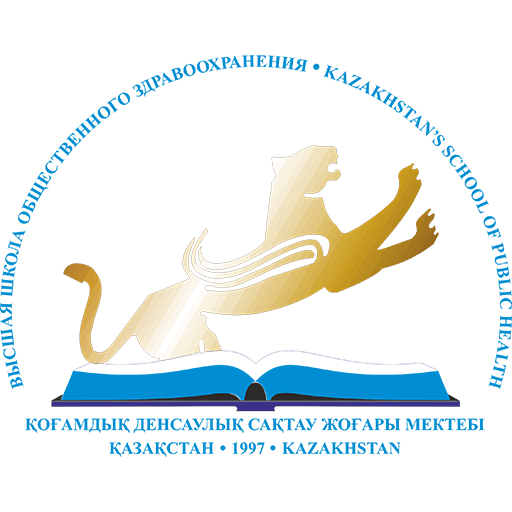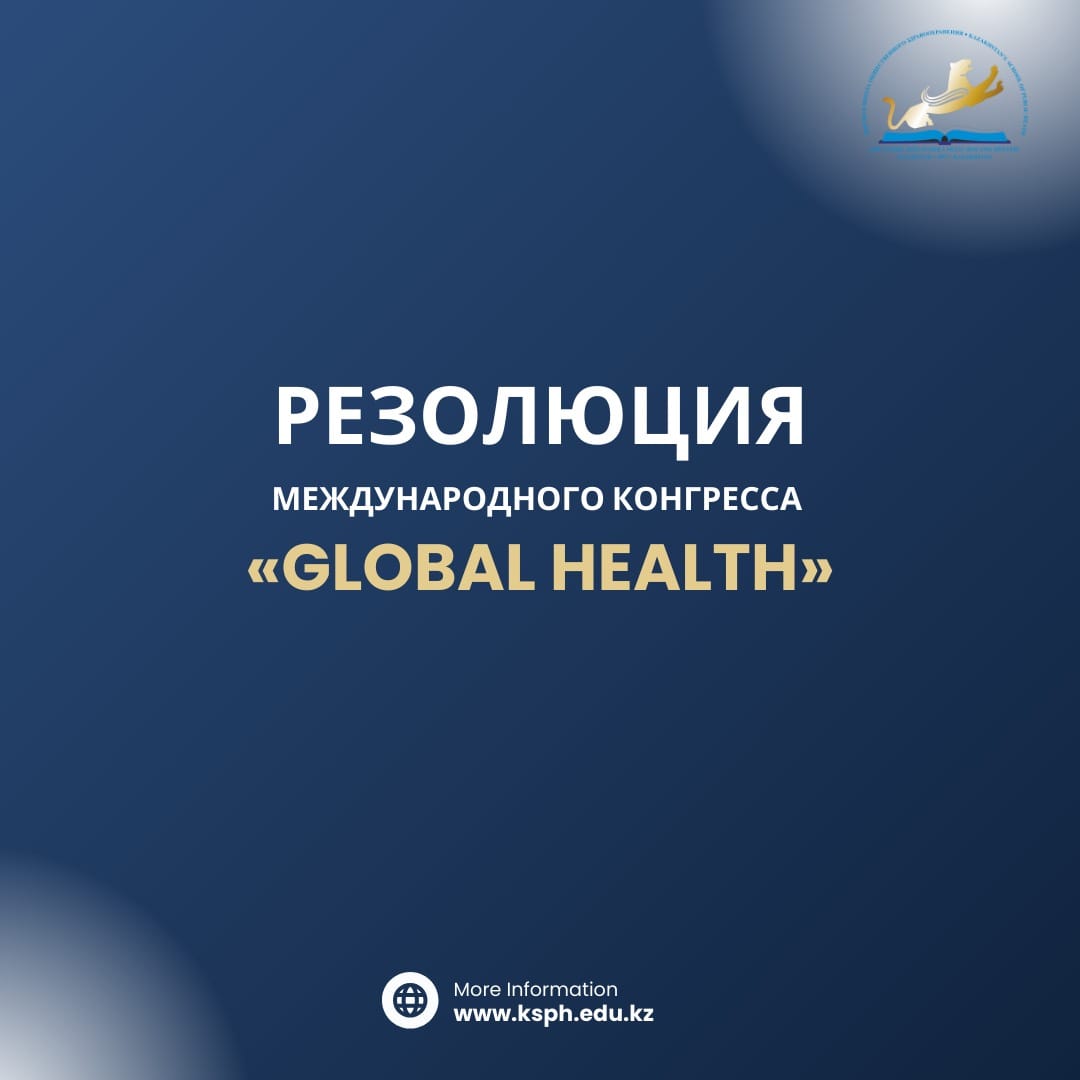Dear colleagues!
We is offer to your attention The resolution of the International Congress “Global Health”, the text of which is given below, concerns a very significant issue for the entire medical community – continuous professional development, public health protection, medical, social and economic aspects of healthcare, digital transformation and the widespread penetration of artificial intelligence.
The Kazakhstan’s Medical University “KSPH”, as a socially responsible university, was very enthusiastic about the initiative of the Minister of Health, Dr. Akmaral Alnazarova, to declare 2025 the year of advanced training and has already prepared additional educational programs for you.
Resolutionof the International Congress “Global Health”Almaty, 2024
On December 5-7, 2024, the International Congress “Global Health” was held in Almaty, organized by the Kazakhstan’s Medical University “KSPH” together with the Association of Management and Public Health, the Association of Clinics in Almaty, the Union of Simulation Training and Independent Expertise, as well as the International Center AMC TELEDOC International Pte.
The congress was attended by leading scientists and experts from scientific and educational organizations of the Republic of Kazakhstan, government bodies, the Social Medical Insurance Fund, as well as health leaders and experts from distant countries (World Health Organization, Lithuania, Spain, the USA) and neighboring countries (Kyrgyz Republic, Republic of Uzbekistan, Russian Federation, Ukraine).
The plenary session featured prominent guests and leading experts, including academician of the National Academy of Sciences of Kazakhstan V.N. Lokshin, distinguished figure of Azerbaijan Professor E.B. Gelfgat, WHO Regional Office representatives Dr. Moredreck Chibi (Copenhagen) and Thanos Myloneros (Athens), EU healthcare consultant Professor Juozas Galdikas and others.
More than 700 participants officially registered for the Congress.
The program included a plenary session and three sections: “Public Health Management,” “Clinical Medicine,” and “Nursing and School Medicine.”
Congress participants unanimously observed that post-pandemic, there has been a significant increase in attention to continuous professional development, public health protection, medical, social, and economic aspects of healthcare, digital transformation, and the pervasive integration of artificial intelligence.
The participants also called for dialogue and exchange of opinions among all stakeholders to increase involvement and ensure that all concerned parties are included and heard in the decision-making process on important societal issues.
The Congress participants emphasized the enduring importance of unified terminology in public health matters. As such, they proposed adopting internationally recognized formulations of professional terms for further use in scientific, educational, and applied contexts:
- Public Health is the state of well-being, safety, and physical, psychological, and social welfare of the entire population. It depends on various factors, including the physical health of individuals, healthcare accessibility, environmental quality, social equality and justice, education, economic development, and many other aspects.
- Public Health Service includes the organization and management of public health protection services, the development and implementation of preventive measures and programs, health monitoring and evaluation, and research.
- Healthcare Management is the science and practice of managing, regulating, and controlling the financial, labor, and material resources in healthcare.
Following discussions, the Congress participants noted that the low effectiveness of the domestic healthcare system may be attributed to the following reasons:
- Insufficient state funding and low investment appeal in the industry, leading to limited access to healthcare;
- Issues with the quality of medical services, caused by imperfect educational programs, declining quality of education services, and low demand for quality from stakeholders;
- Growing dissatisfaction among healthcare consumers due to limited accessibility and quality of care;
- Insufficient public literacy regarding health issues and disease prevention, among others.
The Congress participants acknowledged that these and other issues create serious challenges and barriers for Kazakhstan’s healthcare system.
In this context, the Congress participants recommend several priority measures to enhance the healthcare system’s potential under the current conditions:
- Urge the entire medical community to contribute to advancing the Global Coalition of Countries on Primary Health Care, initiated by the President of the Republic of Kazakhstan;
- Fully support the initiative of the Minister of Health of Kazakhstan to declare 2025 the Year of Professional Development for Healthcare Specialists;
- Conduct an inventory of the healthcare regulatory framework, eliminate excessive regulation while maintaining legal compliance in the provision of medical services;
- Review the nomenclature of medical specialties based on clarification of professional terminology in Kazakhstan, including the terms “public health,” “public health service,” and “healthcare management”;
- Systematize the functions and competencies of specialists within the concepts of “public health,” “public health service,” and “healthcare management” for overall unification;
- Effectively organize training processes for the specialties of “Public Health” and “Healthcare Management”;
- Regularly analyze and update educational programs considering modern medical advances and technologies;
- Introduce a mandatory course on “Quality of Medical Care” in the final years of study across all educational programs, amounting to no less than 90 credits;
- Recommend that financial resources be allocated to medical workers themselves for continuing education;
- Actively involve patients and the public in healthcare decision-making;
- Support the transfer of interventional technologies in oncology services at all levels of medical care and to the regions;
- Actively promote the development of the “Gerontology” specialty, focusing attention on elderly patients;
- Recommend applying successful practices from Kazakhstan’s experience in reducing neonatal mortality through continuous, team-based learning for doctors and nurses, using online distance technologies across other healthcare services;
- Increase efforts and attention from healthcare administrators and staff toward innovation in health protection, especially artificial intelligence, considering ethical and organizational aspects;
- Ensure high efficiency in corporate governance within medical organizations, fostering quality through the establishment of governing bodies and the implementation of fundamental corporate governance principles: transparency, accountability, fairness, and responsibility;
In the further implementation of professional liability insurance to ensure the status of healthcare workers, protect patients’ rights, and stabilize financial relations in the sector, address problematic areas with feedback from all process participants.


